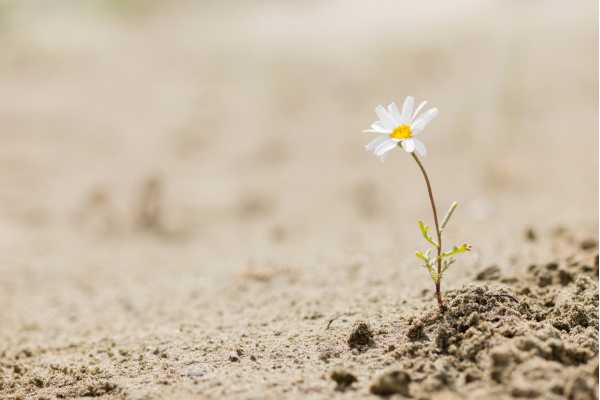Personal growth is not just a buzzword; it’s the foundation for achieving long-term success. Without a commitment to growth, it’s easy to remain stuck in old patterns. In this article, we’ll explore how staying persistent is the real key to transforming your life.
The journey is filled with challenges. You may feel overwhelmed by obstacles, unsure if progress is even happening. That’s where persistence comes in—showing up every day, no matter the setbacks, leads to sustainable improvement.
We’ll cover practical strategies, small daily actions, and how to track your progress effectively. By the end, you’ll have actionable steps to stay persistent in your personal growth.
What Is Personal Growth
Personal growth is the continuous process of improving yourself in various aspects of life. It’s not just about achieving goals; it’s about developing new habits, expanding your mindset, and challenging your limitations. Growth requires self-awareness and a clear understanding of where you are versus where you want to be.
This journey involves mental, emotional, and sometimes even spiritual changes. Whether it’s building resilience, learning new skills, or improving your relationships, the goal of personal growth is to become a better version of yourself. It’s a lifelong commitment to self-improvement.
Why Stay Persistent
Staying persistent in personal growth is essential because real change doesn’t happen overnight. A very easy way to feel discouraged, when things are moving slowly, is to remind oneself that persistence is the key to covering the distance dividing where I am from where I want to be. The ultimate successful effort in any endeavor is the one that does not arrive at any point of giving up.
Setbacks are inevitable, but persistence helps you push through temporary failures. Whether you’re working on building a habit or mastering a new skill, staying the course will lead to long-term results. Commitment beats quick fixes every time.
Overcoming Challenges
Challenges are an unavoidable part of personal growth, but they don’t have to stop you. Instead of viewing obstacles as roadblocks, see them as opportunities for learning and improvement. Every setback is a lesson that helps you refine your approach and grow stronger.
The first step in tackling tough problems is to pluck the apple in small pieces. That way, the overall process becomes less daunting and achievable. On the other hand, one must adjust the mind to welcome failure as a part of the learning phase. One should understand that health comes from perseverance, not perfection.
Small Daily Steps
Small daily steps are the backbone of consistent personal growth. Rather than focusing on massive changes, commit to minor, manageable actions every day. These small efforts compound over time, creating lasting transformation without the overwhelming pressure to achieve instant results.
Habits like reading for 10 minutes, journaling, or practicing mindfulness can gradually reshape your mindset and behaviors. By doing these things daily, you build momentum. The key to growth is consistency, not the size of the action. Small, steady improvements always lead to bigger changes over time.
Additionally, tracking these habits helps you see progress, even when it feels slow.
Measuring Progress
Measuring progress in your personal growth journey is essential to stay motivated and focused. Without tracking your development, it’s easy to feel stuck or lose sight of how far you’ve come. Regularly evaluating your progress helps maintain momentum and adjust your efforts where necessary.
Start by setting clear, achievable goals. Break them into smaller milestones that you can track weekly or monthly. Use tools like journals, habit trackers, or even apps to monitor your growth. Seeing measurable progress, even in small increments, boosts confidence and keeps you moving forward.
In addition, self-reflection is key. Take time to assess not only what you’ve accomplished but also how you’ve changed mentally or emotionally. Growth isn’t just about hitting targets—it’s about becoming more self-aware and resilient throughout the process.
Staying Focused
Staying focused is crucial for continuous personal growth. Without focus, it’s easy to get distracted or discouraged by obstacles. Keeping your goals clear and front of mind helps you maintain the drive needed to push through challenging moments.
To remain productive, always keep a distraction-free environment. Allocate some time exclusively for self-improvement activities, such as reading, writing, and practicing a foreign language. You can also apply task decomposition to your major goals, transforming them into smaller, more controllable ones and preventing that feeling of being overpowered once more.
Additionally, remind yourself of your “why.” Understanding the deeper reasons behind your personal growth journey can re-ignite your motivation when things get tough. Stay patient, stay persistent, and keep your vision in sight.
Personal Growth: A Lifelong Journey
Personal growth is not a destination; it’s an ongoing process of self-improvement. As we’ve explored, staying persistent is key. Challenges will arise, but overcoming them with daily, small actions creates lasting change. Measuring progress and maintaining focus ensure that your efforts lead to meaningful development.
Remember, growth doesn’t happen overnight, but by consistently showing up and staying committed, you can reshape your habits, mindset, and overall life. Surround yourself with support, track your wins, and never underestimate the power of persistence. Your growth journey is unique—and it’s worth every step. Keep moving forward.
Questions About Personal Growth
How long does personal growth take?
Personal growth is a lifelong journey. There’s no set timeframe for improvement, as it varies by individual goals and effort. What matters most is persistence and consistent action.
What are common obstacles to personal growth?
Common obstacles include self-doubt, fear of failure, lack of focus, and external distractions. Recognizing and addressing these challenges helps you stay on track.
How can I measure my personal growth?
Tracking small milestones, journaling, and using habit trackers or apps are effective ways to measure progress. Regular self-reflection also helps you gauge emotional and mental growth.
Why is persistence important in personal growth?
Persistence helps you push through setbacks and stay committed to long-term goals. Real growth comes from consistently showing up, even when progress seems slow or difficult.
What are some small daily actions for personal growth?
Simple habits like reading, journaling, practicing mindfulness, and setting daily goals can create powerful change over time. Small, consistent actions build momentum toward larger growth goals.

Emily Johnson is a writer focused on personal development, relationships, and well-being. Her articles offer practical advice for self-discovery, growth, and effective communication. With a blend of empathy and expertise, she guides readers toward a more fulfilling and balanced life.

